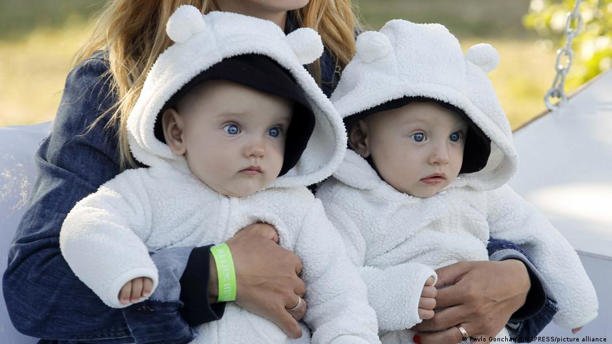One of the conundrums of evolution is when we can no longer reproduce, we enter old age.
Scientists now believe that aging may actually be a result of our reproduction, all the result of natural selection over millions of years.
The study, which analyzed the genes of 276,406 UK Biobank participants, found that people who carry gene variants that promote reproduction are less likely to live to old age.
“We confirmed a hypothesis called the antagonistic pleiotropy hypothesis,” said Jianji Zhangang from the University of Michigan in the US and senior author of the study in the journal Science.
People who carry genetic differences that promote reproduction are more likely to die by the age of 76, according to research. It also shows that the genetic differences that lead to reproduction increased between generations from 1940 to 1969, indicating that humans are still evolving and strengthening this trait.
Our genes are the product of hundreds of thousands of years of evolution. What is surprising is that this pattern is still evident even though we are healthier than before,” said AS, who not involved in the study. said Stephen Austad, a gerontologist at the University of Alabama at Birmingham.
Scientists have long been puzzled about the evolutionary origin of aging. From an evolutionary perspective, the reason why our reproductive performance declines with age is unknown. Surely being more fertile in old age would be evolutionarily advantageous, giving our genes more time to pass on?
According to the antagonistic pleiotropy hypothesis, this is not the case. The hypothesis states that the benefits of fertility in early life are responsible for the high cost of old age. This new study now provides reliable evidence from a large population to support this.
like some mutations that have two sides: when we’re young we’re good and when we’re old.” not good,” said Arcadi Navarro Cuartiellas, a geneticist at the University of Pompeu Fabra in Barcelona, Spain. He did not participate in the study.
An example is the effects of menopause and infertility in women. An egg, sometimes called an ovary, is lost during a woman’s life. This makes a person more fertile when young, but loses fertility later in life through menopause.
Biologists believe that the benefits of regular cycles for reproduction can outweigh the cost of infertility in old age. The downside is that menopause accelerates aging.
Evolutionarily, it can be useful because she can spare more copies of that option than a woman who has only one child. her body, leading to faster aging,” he said. .
However, there are criticisms of the antagonistic pleiotropy hypothesis. The first is the impact of environmental and socioeconomic changes on aging, which this study also ignores.
After all, people are living longer than ever before in history, and that’s largely due to better health, not genetic evolution.
“This trend of phenotypic changes is mainly due to changes in lifestyle and technology, and changes in the environment,” he said.
In the antagonist pleiotropy hypothesis, Austad says, “there is a lot of evidence before this paper, but not for humans.” But with human studies and large sample sizes, that means the research could be important for understanding aging-related diseases.
“As a result, some of these variants can be studied to see if they are associated with certain health problems later in life,” Austad told DW.
Scientists think the hypothesis could help explain why so many serious genetic disorders have existed in our long evolutionary history.
Sickle cell anemia is a good example of antagonistic pleiotropy—thus, hereditary blood disorders that cause anemia have evolved as a defense mechanism against malaria.





















